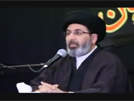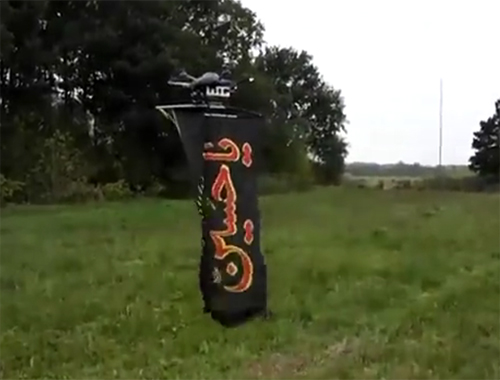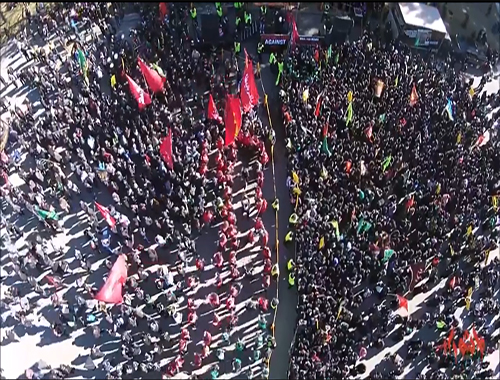Invocation
- Details
- Hits: 3967
Invocation
--------------------------------------------------------------------------------
Imam Sadiq [a] said: "Every invocation sought from Allah, Almighty and Glorious, is barred by the sky unless it is coupled with 'Salawat', benediction upon the Prophet and his progeny." (The expression of 'Salawat' means: O God bless Muhammad and his descendants).
Usul-i-Kafi, vol. 2, p. 493
Imam Sadiq [a] said: "The Muslim believer whose calls were not answered by Allah in this world will wish that none of them would have been accepted when, in the Hereafter, he sees the abundance of rewards (given him for their not being answered and suffering the troubles in the world)."
Usul-i-Kafi, vol. 2, p. 491
Imam Amir ul Mu'mineen Ali [a] said: "The most beloved deed on the earth with Allah, Almighty and Glorious is invocation, and the best worship is modesty and piety."
Bihar-ul-Anwar, vol. 93, p. 295
Imam Amir ul Mu'mineen Ali [a], when teaching (some of) his followers, said: "The doors of heaven are opened at five times: When it is raining; at the time of Holy War; at the time of Call to prayer; at the time of recitation of the Qur'an with the setting of the sun, and at the break of dawn."
Al-Khisal, by Saduq, p. 302
Again, Imam Amir-ul-Mu'mineen Ali [a] said: "Avail yourselves of the invocation in five situations: At the time of recitation of the Qur'an, at the time of prayer call, when it is raining, when attending the Holy War ready for martyrdom, when an oppressed person supplicates, because, certainly, there is no barrier for it beneath the Throne."
Bihar-ul-Anwar, vol. 93, p. 343
Imam Husayn [a] said: "O Lord! You are the nearest one Whom can be requested from; You are the soonest responder, and You are the most gracious in bestowing; Whose gift is the vastest and You hearken the best to what you are asked for. I call to You, O' the Beneficent in this world and the next, and the Merciful in both of them!"
'Arafah Invocation
Imam Amir ul Mu'mineen Ali [a] said: "He who is bestowed four things is not deprived of four things: he who is allowed to pray is not deprived of the response to it; he who is allowed to offer repentance is not deprived of its acceptance; he who is allowed to seek forgiveness is not deprived of forgiveness; and he who is allowed to be grateful is not deprived of furtherance of favours."
Nahjul Balagha, Saying 135
Note:
The compiler of Nahjul Balagha, as-Sayyid ar-Radi says: This is confirmed by the Book of Allah. About praying, Allah says: " Call You to Me, I will answer you' (the Qur'an, 4:60). About forgiveness Allah says: 'And whoever does evil, or wrongs his own self and thereafter seeks the pardon of Allah shall find Allah Oft-Forgiving, Merciful' (the Qur'an, 4:110). About gratefulness He says: 'If you be grateful, I will increase (My favours) to you' (the Qur'an, 14:7). About repentance He says: 'Verily, repentance (acceptable) with Allah is only for those who do evil ignorantly and then turn (to Allah) soon (after); these (are those whom) Allah will turn (mercifully) to; and Allah is All-Knowing, All-Wise (the Qur'an, 4:17).
Imam Sadiq [a] said: "On the Reckoning Day, Allah will count the invocations of believers as some good actions for them and thereby He will promote their position in Heaven."
Bihar-ul-Anwar, vol. 78, p. 216
Imam Sadiq [a] said: "Treat your ailments with charity and repel varieties of affliction by invocation."
At-Tahthib, vol. 4, p.112
Imam Sadiq [a] said: "Ask (Allah) for your requisite and insist on demanding because Allah likes the persistence of the insisting believers of His servants."
Wasa'il-ush-Shi'ah,voI. 7, p. 60
Imam Sadiq [a] said: "I recommend you to invocation, because you can not get nigh to Allah by any means like it."
Al-Kafi, vol. 2, p. 467
Imam Amir ul Mu'mineen Ali [a] said: "It may happen that you ask (Allah) for something and He does not give it to you in order to endow you with (something) of better quality (later)."
Ghurar-ul-Hikam, p.185











